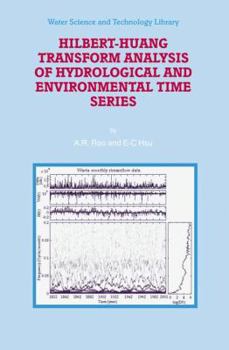Hilbert-Huang Transform Analysis of Hydrological and Environmental Time Series
Select Format
Select Condition 
Book Overview
To accommodate the inherent non-linearity and non-stationarity of many natural time series, empirical mode decomposition (EMD) and Hilbert-Huang transform (HHT) provide an adaptive and efficient method. The HHT is based on the local characteristic time scale of the data. The HHT method provides not only a precise definition in time-frequency representation than the other conventional signal processing methods, but also more physically meaningful interpretation of the underlying dynamic processes. The EMD also works as a filter to extract the variability of signals with different scales and is applicable to non-linear and n- stationary processes. This promising algorithm has been applied in many fields since it was developed, but it has not been applied to hydrological and climatic time series. The discussion in this book starts with several simulated data sets in order to investigate the capability of this method and to compare it to other conventional frequency-domain analysis methods that assume stationarity. Rainfall, streamflow, temperature, wind speed time series and lake temperature data are investigated in this study. The aim of the work is to investigate periodicity, long term oscillations and trends embedded in these data by using HHT. The analysis is performed in both the time and frequency domains. The results from HHT are compared to those from the multi-taper method (MTM) which is based on Fourier Transform of the data.
Format:Paperback
Language:English
ISBN:904817645X
ISBN13:9789048176458
Release Date:November 2010
Publisher:Springer
Length:248 Pages
Weight:0.81 lbs.
Dimensions:0.6" x 6.1" x 9.2"
Customer Reviews
0 rating





